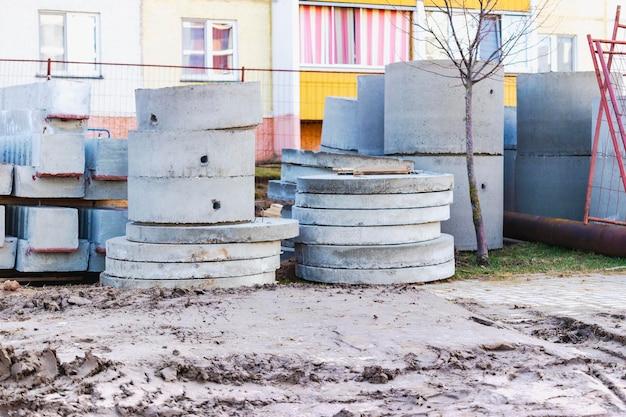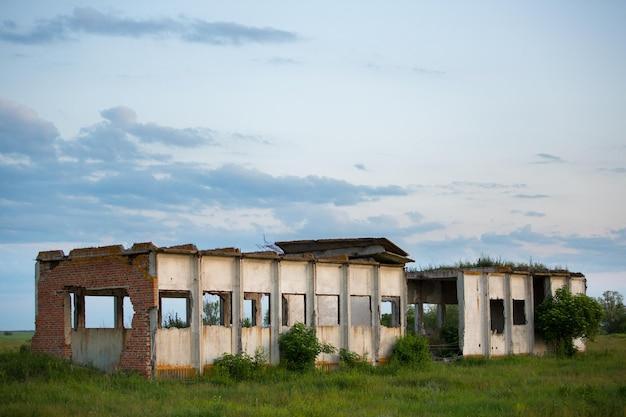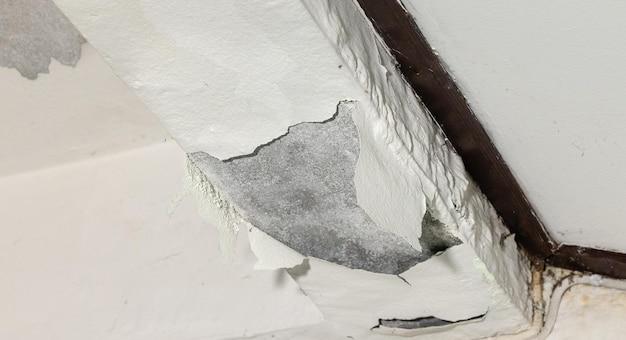As a homeowner, you can encounter various types of problems, and one of the most common is a slab leak. It is a situation where the hot and cold water pipes that pass through the foundation (or the “slab”) beneath your home begin to leak. A slab leak can cause damage to your home, and it can be quite costly to repair.
So, what should you do if you experience this problem? Is a slab leak covered by homeowners insurance? In this blog post, we will explore this question and provide answers to other common questions homeowners have about slab leaks.
We will also discuss the cost of repairing a slab leak, how common they are, and how serious they can be if left untreated. Furthermore, we will take a closer look at home warranty coverage for slab leaks and provide tips on how to get insurance to cover a slab leak.
If you are wondering whether slow water leaks are covered by home insurance, or if State Farm homeowners insurance covers slab leaks, keep reading. This blog post has all the answers you need to protect your home from the costly damage of a slab leak.
Is a Slab Leak Covered by Homeowners Insurance
If you’re a homeowner, you’re probably well aware of the many things that can go wrong with your property. One of the most devastating issues you can face is a slab leak. But is this kind of leak covered by your homeowner’s insurance policy?
The Short Answer
The answer to this question is, unfortunately, not always straightforward. While some insurance policies do cover slab leaks, others explicitly exclude them. It’s essential to carefully read your policy and speak to your insurance provider to understand the specifics of your coverage.
Understanding Slab Leaks
Before we dive into how to determine whether your insurance policy covers slab leaks, let’s first discuss what a slab leak is. Essentially, a slab leak is a breach in the pipes that run beneath the concrete slab of your property. When these pipes leak, they can cause water damage, expensive repairs, and even foundation damage if left unchecked.
Common Coverage
If your policy does cover slab leaks, you may be eligible for the following types of coverage:
- Damage to the foundation and slab of your property
- Water damage to your flooring, walls, and furnishings
- Coverage for the cost of emergency repairs and plumbing
Exclusions
As we mentioned earlier, some insurance policies explicitly exclude slab leaks. In these cases, you may need to purchase additional coverage to ensure that you’re protected against this type of damage.
Regardless of whether your policy covers slab leaks, it’s always a good idea to invest in routine plumbing maintenance. Catching and addressing issues early can help prevent more significant problems from occurring and may even save you money in the long run.
Remember, the specifics of your homeowner’s insurance coverage will depend on your policy and insurance provider. If you’re unsure whether you’re covered for slab leaks or other types of damage, reach out to your provider to discuss your options.
Slab Leak Repair Cost
Dealing with a slab leak is not only stressful but also financially taxing. Unfortunately, many homeowners have to bear this burden as it’s not uncommon for a slab leak to occur. If you suspect that your home has a slab leak, it’s essential to act fast to minimize water damage and repair costs. But how much will it cost you to fix a slab leak? Let’s dive in and find out.
Factors Affecting Slab Leak Repair Cost
The cost of slab leak repair is dependent on several factors, including the extent of damage, location of the leak, repair technique, and local repair rates. Here is a breakdown of these factors:
Extent of Damage
The more extensive the damage, the higher the cost of repair. Slab leaks that have been left unattended for a long time can cause significant water damage, leading to costly repairs.
Location of the Leak
The location of the slab leak also affects the repair cost. If the leak is in an easily accessible area, it may cost less to repair than a leak that’s in a hard-to-reach location.
Repair Technique
There are several repair techniques for slab leaks, and each technique has a different cost. The most common repair methods include epoxy pipe lining, traditional pipe repair, and rerouting.
Local Repair Rates
Finally, the cost of slab leak repair will vary depending on where you live. In areas with a high cost of living, expect to pay more for repair services.
Slab Leak Repair Cost Breakdown
On average, the cost to repair a slab leak ranges from $2,000 to $6,000. Here is a breakdown of the cost based on the repair technique:
- Epoxy pipe lining – $4,000 to $6,000
- Traditional pipe repair – $2,000 to $15,000
- Rerouting – $2,000 to $10,000
It’s worth noting that the cost of repair will vary depending on the factors mentioned above. Also, dealing with a slab leak early can help reduce repair costs significantly.
Dealing with a slab leak is not something any homeowner wants to face, but it’s important to act fast to avoid costly repairs. The cost of slab leak repair will vary depending on various factors such as the location of the leak, extent of damage, repair technique, and local repair rates. Ensure to hire a professional plumber to diagnose and repair your slab leak to avoid any further damage or costly repairs.
How Common Are Slab Leaks
If you’re a homeowner, the thought of a slab leak is probably one that fills you with dread. Not only can they cause significant water damage to your home, but they can also be incredibly costly to repair. But just how common are slab leaks, and should you be worried about them?
What Are Slab Leaks
First off, let’s define what we mean by a slab leak. Essentially, this is a type of leak that occurs in the water pipes that run beneath the concrete slab foundation of your home. Because the pipes are hidden from view, a slab leak can go undetected for a long time, causing damage to the foundation and the surrounding areas.
How Common Are They
Unfortunately, there’s no one-size-fits-all answer to this question. Slab leaks can occur in any home, regardless of its age or location. Some homes are more prone to slab leaks due to the type of construction or the materials used, while others may never experience one.
That being said, there are some factors that can increase the likelihood of a slab leak. Homes in areas with high water tables or soil that is prone to shifting are more at risk. Similarly, older homes with aging water pipes are more likely to experience a leak.
Signs of a Slab Leak
So, how do you know if you have a slab leak? There are a few telltale signs to look out for. These include:
- A sudden increase in your water bill
- The sound of running water when no faucets are turned on
- Wet spots or puddles on the floor
- Cracks in the walls or floors
If you notice any of these signs, it’s important to act quickly. Ignoring a slab leak can lead to costly repairs and further damage to your home.
Prevention Is Key
While slab leaks can be difficult to predict or prevent, there are some steps you can take to minimize your risk. Regular plumbing inspections can help identify any potential issues before they turn into full-blown leaks. Similarly, taking care to avoid pouring hot or corrosive substances down your drains can help extend the life of your pipes.
Ultimately, while slab leaks can be a headache for homeowners, they’re not an inevitability. By staying vigilant and taking preventative measures, you can minimize your risk of experiencing a costly leak.
How Serious Is a Slab Leak
If you’re dealing with a slab leak, you may be wondering how serious of an issue it is. In short, slab leaks are a serious matter that require immediate attention. Here are a few reasons why:
Water Damage
Slab leaks can cause extensive water damage to your home, resulting in costly repairs and potential health hazards. Water seeping into your home can cause mold growth, which can lead to respiratory problems, flu-like symptoms, and even neurological damage.
Higher Water Bills
A slab leak can cause your water bills to skyrocket as you continue to use water unknowingly. If you notice an unusual spike in your water bills, it’s essential to have your plumbing system checked for leaks.
Structural Damage
If left unattended, a slab leak can also cause structural damage to your home’s foundation. This damage can lead to cracks, shifts, and even collapse. Repairing foundation damage can cost thousands of dollars, making it essential to address a slab leak as soon as possible.
Pest Infestations
A moist environment resulting from a slab leak can attract pests to your home. Termites, rodents, and cockroaches are all known to thrive in wet environments and can cause additional damage to your home and health hazards.
Insurance Coverage
Whether or not your insurance will cover a slab leak depends on your policy and the cause of the leak. However, most insurance policies will cover damages resulting from a sudden leak, such as a burst pipe.
In summary, a slab leak is a serious issue that requires immediate attention. Remember to regularly check your home’s plumbing system, keep an eye out for any increase in your water bills, and have your home inspected if you notice water damage or signs of a pest infestation.
Does Home Warranty Cover Slab Leaks
Home warranty plans are a great way to ensure that you have minimal repair expenses as a homeowner. However, one question that many homeowners have is whether home warranty covers slab leaks. Let’s find out!
Understanding Home Warranty Coverage
Home warranties, also known as home service contracts, provide coverage for specific home systems and appliances due to normal wear and tear. The coverage may vary depending on the type of plan purchased and the provider. Typically, home warranty plans cover kitchen appliances, heating and air conditioning systems, plumbing systems, and electrical systems.
Does Home Warranty Cover Slab Leaks
Most home warranty plans do not cover slab leaks because they are considered a structural problem and not a system or appliance issue. Homeowners insurance usually covers structural problems, but only if it is sudden and accidental. A slab leak is usually not sudden but rather a gradual problem that gets worse over time.
Home Warranty Plans That Cover Slab Leaks
Although most home warranty plans do not cover slab leaks, some providers offer additional coverage or add-ons that include slab leakage protection. Homeowners can check with their home warranty provider to see if they offer this service or if there is an add-on available that covers slab leaks.
The Importance of Regular Maintenance
Regardless of the coverage homeowners have for slab leaks, regular maintenance is crucial to prevent them from happening. Factors such as soil movement, hard water, and corroded pipes can all contribute to a slab leak. Regular inspections and maintenance can help detect and prevent slab leaks before they cause extensive damage and expensive repairs.
In conclusion, most home warranty plans do not cover slab leaks, and homeowners insurance only covers sudden and accidental damage. However, homeowners can check with their provider for additional coverage or add-ons that offer slab leakage protection. Regular maintenance is essential to prevent slab leaks from occurring in the first place.
How to Get Insurance to Cover a Slab Leak
If you’re a homeowner dealing with a slab leak, you may be wondering how to get insurance to cover the damage. Here are some steps you can take to maximize your chances of getting coverage:
Review Your Insurance Policy
The first step is to review your insurance policy and check if it covers slab leaks. If your policy doesn’t cover slab leaks, you may need to purchase additional coverage. Check with your insurance agent to see what options are available.
Document the Damage
Take pictures and videos of the damage and keep receipts or invoices for any repairs or replacements. Submit this documentation to your insurance company when making a claim.
File a Claim
Contact your insurance company and file a claim as soon as possible. Be prepared to provide detailed information about the leak, including when it started and how it was discovered.
Work with an Expert
Slab leaks can be complex and costly to repair. Work with a trusted plumber or contractor who specializes in slab leak detection and repair. They can provide an estimate of the damage and help you navigate the insurance claims process.
Be Persistent
Dealing with an insurance claim can be frustrating, especially if you’re facing a large repair bill. Be persistent and follow up with your insurance company regularly to make sure your claim is moving forward.
In conclusion, getting insurance to cover a slab leak can be a complex process, but by reviewing your policy, documenting the damage, filing a claim, working with an expert, and being persistent, you can increase your chances of getting the coverage you need.
Slow water leaks: Are they covered by home insurance
Water leaks are a common household problem that can cause water damage or mold growth. Slow water leaks may be trickier to detect, but they can still cause serious damage over time. The big question is, are slow water leaks covered by home insurance?
Slow water leaks are often caused by a tiny crack or hole in a pipe or fixture, or a worn out seal. They may not be noticeable at the time of occurrence, but they can cause significant damage to your property over time. However, insurance policies don’t cover all types of water damage.
What does the policy cover
Homeowners insurance typically covers sudden and accidental water damage caused by a burst pipe, a pipe that freezes and bursts, or a plumbing malfunction. Unfortunately, slow water leaks are not covered in most insurance policies. This type of leak is usually considered to be a maintenance issue that requires regular checks and preventative measures.
What should you do
If you detect a slow water leak in your home, it’s important to take action as soon as possible. You should shut off the water supply and call a professional plumber to check and repair the leak.
It’s also important to check your insurance policy to see what’s covered and what’s not. If you live in an area that’s prone to water damage, you may want to consider purchasing additional coverage.
Prevention is key
Prevention is always better than cure. To prevent slow water leaks, it’s important to have your plumbing system checked regularly by a professional plumber. Here are a few tips to help you prevent slow water leaks:
- Check your appliances and fixtures regularly for signs of wear and tear.
- Replace old pipes and fixtures before they fail.
- Insulate your pipes to prevent freezing and bursting.
- Monitor your water bill for any sudden increases that may indicate a leak.
- Invest in a water leak detector to alert you of any leaks before they cause damage.
To sum up, slow water leaks are usually not covered by home insurance policies. The best way to prevent them is to maintain your plumbing system regularly. If you do detect a slow water leak, you must act quickly to prevent any further damage.
Does State Farm Homeowners Insurance Cover Slab Leaks
As a homeowner, you might be wondering whether your State Farm homeowners insurance covers a slab leak. A slab leak is a water leak that occurs in the pipes underneath your home’s concrete slab foundation. This type of leak can cause significant damage to your property, so it’s essential to know if your insurance policy covers it.
Understanding State Farm Homeowners Insurance Policy Coverage
State Farm homeowners insurance policy covers a variety of home-related damages, including fire, theft, and water damage. However, not all types of water damage are covered, and that includes slab leaks.
Does State Farm Offer Slab Leak Coverage
Unfortunately, State Farm does not offer specific coverage for slab leaks. If you suspect you may have a slab leak, you should contact a licensed plumber to diagnose the issue. You could be responsible for any repair or damage costs associated with the leak.
What Should You Do If You Suspect a Slab Leak
It’s always better to be safe than sorry when it comes to home damage. If you suspect a slab leak, you should immediately contact a plumbing professional to assess the situation. Try to prevent water from spreading or causing further damage by turning off the main water valve.
How Can You Prevent Slab Leaks
Prevention is always key when it comes to home damage. There are a few things you can do to prevent slab leaks, such as monitoring your water bills for any sudden spikes, fixing any leaks as soon as you notice them, and inspecting your home’s plumbing regularly.
While State Farm homeowners insurance does not offer coverage for slab leaks, it’s always best to familiarize yourself with your policy’s coverage. To prevent costly damages from slab leaks, homeowners should focus on prevention and regular maintenance of their plumbing systems.



